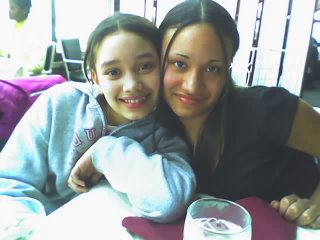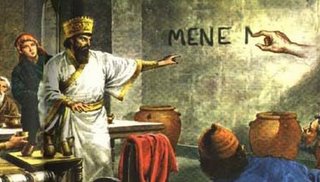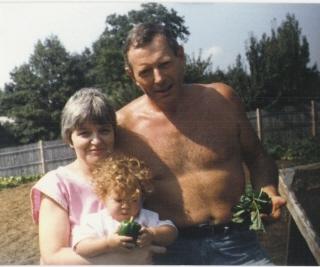
Have a quiet, contemplative Christmas, everyone.
I know I will.
A Catholic priest does his thinking outloud on this weblog. Fair warning.
 This kid, Justin Berry, started his online porn service when he was barely 13. He became a star in the frighteningly depraved world of Internet sickos and made all kinds of money doing it. His mother, oblivious; his father, complicit; his clients and admirers hungry for the next turn-on at the boy's expense.
This kid, Justin Berry, started his online porn service when he was barely 13. He became a star in the frighteningly depraved world of Internet sickos and made all kinds of money doing it. His mother, oblivious; his father, complicit; his clients and admirers hungry for the next turn-on at the boy's expense. I am intrigued by the high regard given by Christ to childhood in his outlook on the human condition. "If you do not become like children you will not enter the kingdom of heaven."
I am intrigued by the high regard given by Christ to childhood in his outlook on the human condition. "If you do not become like children you will not enter the kingdom of heaven." To understand that our need, our insufficiency and the utter precariousness of our situation are the best thing we have going for us - like the castaway whose best friend is the piece of driftwood he clings to - is to open up to the ultimate truth.
To understand that our need, our insufficiency and the utter precariousness of our situation are the best thing we have going for us - like the castaway whose best friend is the piece of driftwood he clings to - is to open up to the ultimate truth.

 Everyone's still talking about the Tookie Williams execution of last night. Hannity said on his radio program that he'd give us an update on tonight's TV show.
Everyone's still talking about the Tookie Williams execution of last night. Hannity said on his radio program that he'd give us an update on tonight's TV show.  The archbishop visited the parish on Sunday. Somebody told him that the celebration of Our Lady of Guadalupe was a big deal over here, so he had a homily prepared for the occasion. He preached in Spanish and pretty much stuck to his script. There were some blank stares during the sermon, but folks were polite enough not to comment on it. Although OLG was named patroness of all the Americas by John Paul II, it is only a huge celebration among Mexicans. We only have a couple of Mexican families at this parish. Many of my fondest memories of Mexico are linked to December 12.
The archbishop visited the parish on Sunday. Somebody told him that the celebration of Our Lady of Guadalupe was a big deal over here, so he had a homily prepared for the occasion. He preached in Spanish and pretty much stuck to his script. There were some blank stares during the sermon, but folks were polite enough not to comment on it. Although OLG was named patroness of all the Americas by John Paul II, it is only a huge celebration among Mexicans. We only have a couple of Mexican families at this parish. Many of my fondest memories of Mexico are linked to December 12. A Boston Globe op-ed today describes legal execution of convicted criminals 'our duty'. It rejects the USCCB's pronouncement of last month and extensively quotes from the Old Testament in support of the death penalty.
A Boston Globe op-ed today describes legal execution of convicted criminals 'our duty'. It rejects the USCCB's pronouncement of last month and extensively quotes from the Old Testament in support of the death penalty.

 Bono dedicated the concert to the memory of John Lennon on the 25th anniversary of his death. He also threw in a couple of 'sermons' on topics dear to his heart: peaceful co-existence, reduction of debt for developing nations, the UN charter on human rights...
Bono dedicated the concert to the memory of John Lennon on the 25th anniversary of his death. He also threw in a couple of 'sermons' on topics dear to his heart: peaceful co-existence, reduction of debt for developing nations, the UN charter on human rights...U2 once again nominated for 5 Grammy awards. Not bad for a group their own lead singer once described as "four jerks and a police escort".


 I have found two other meanings for the initials STD. Beside sexually transmitted disease and sacrae teologiae doctor, that is.
I have found two other meanings for the initials STD. Beside sexually transmitted disease and sacrae teologiae doctor, that is. Some folks still remember the days when suicides were not given a funeral Mass or 'Christian' burial. But the understanding of the emotional and mental states that often end in taking one's own life has deepened and Canon Law has changed accordingly. Suicide is no longer mentioned explicitly in the norm (1184) that refers to exclusion from exequia ecclesiastica. In principle, a funeral Mass could be denied in three cases: a known apostate, heretic or schismatic; someone who has been cremated for reasons contrary to the faith; a notorious sinner for whom a funeral Mass could not be celebrated without grave scandal of the faithful.
Some folks still remember the days when suicides were not given a funeral Mass or 'Christian' burial. But the understanding of the emotional and mental states that often end in taking one's own life has deepened and Canon Law has changed accordingly. Suicide is no longer mentioned explicitly in the norm (1184) that refers to exclusion from exequia ecclesiastica. In principle, a funeral Mass could be denied in three cases: a known apostate, heretic or schismatic; someone who has been cremated for reasons contrary to the faith; a notorious sinner for whom a funeral Mass could not be celebrated without grave scandal of the faithful. I confess to laughing during morning Mass today. The reading from Daniel about the writing on the wall has done that to me since about 11 years ago when I baptized an unfortunate child whose parents decided to name him Menetekel. This was in a little town called La Ciénega in Mexico state. At the time I thought it was some family ancestral name, not that much different from Cuauhtemoc or Xochit. Only later did it dawn on me that the name was of Biblical origen.
I confess to laughing during morning Mass today. The reading from Daniel about the writing on the wall has done that to me since about 11 years ago when I baptized an unfortunate child whose parents decided to name him Menetekel. This was in a little town called La Ciénega in Mexico state. At the time I thought it was some family ancestral name, not that much different from Cuauhtemoc or Xochit. Only later did it dawn on me that the name was of Biblical origen.

 Like these stupid parakeets my brother sent me - he's allergic to feathers or guano or chirping - the world consists in what goes on in their cage. If there's water, toys, seed... oh yeah, and that mirror. They love that freaking mirror. That's what a kid is like, a parakeet in his cage, seeing only a very minute part of reality, basically unconcerned with anything that doesn't enter his own little sphere.
Like these stupid parakeets my brother sent me - he's allergic to feathers or guano or chirping - the world consists in what goes on in their cage. If there's water, toys, seed... oh yeah, and that mirror. They love that freaking mirror. That's what a kid is like, a parakeet in his cage, seeing only a very minute part of reality, basically unconcerned with anything that doesn't enter his own little sphere. Earlier embryonic testing will increase the possibility of detecting Down Syndrome in the unborn. That, states the article, will be extremely helpful in assisting couples with the decision whether to abort or not.
Earlier embryonic testing will increase the possibility of detecting Down Syndrome in the unborn. That, states the article, will be extremely helpful in assisting couples with the decision whether to abort or not.  I guess we're just getting too sophisticated for our own good. When we start weeding out the 'defective', we're well on the way to a society of perfect, beautiful people. Like Paris Hilton and George Clooney.
I guess we're just getting too sophisticated for our own good. When we start weeding out the 'defective', we're well on the way to a society of perfect, beautiful people. Like Paris Hilton and George Clooney.
 The new tests are in use already. The study being published today culminates a $15 million government-financed effort to determine which tests work best.
The new tests are in use already. The study being published today culminates a $15 million government-financed effort to determine which tests work best.



 I don't know what Rev. Hoyt's intentions were, but I can't see the cause of ecumenism being furthered by his lecture. For him, ecumenism is a social issue, a question of justice, equality and desegregation. It is about race and power and democracy taking root.
I don't know what Rev. Hoyt's intentions were, but I can't see the cause of ecumenism being furthered by his lecture. For him, ecumenism is a social issue, a question of justice, equality and desegregation. It is about race and power and democracy taking root.


 On the downside, there is some gimmickry unbecoming of self-respecting demons: the 3:00 am starting time of their activities, their choice of Halloween as the best day for business, etc. As if the evil ones were on some sort of schedule...
On the downside, there is some gimmickry unbecoming of self-respecting demons: the 3:00 am starting time of their activities, their choice of Halloween as the best day for business, etc. As if the evil ones were on some sort of schedule...

 As for the topic of homosexuality and the priesthood... well, even the Exorcist has second thoughts about opening that can of worms. Certainly ordination to the Catholic priesthood is nobody's right and the Church can enforce whatever selection policy it deems appropriate. Can a homosexual man live virtuously his whole life in an atmosphere where male companionship and cohabitation is not only a fact, but the norm? I assume it is possible. Easy? Desireable? Hmmm... Does the fact that 90% of all incidents of clergy abuse have involved males necessarily mean there's a connection between homosexuality and abuse? Maybe not, but if this were any other topic I don't think we'd feel as obliged to split hairs and look for other types of explanations. Political correctness makes idiots of us all...
As for the topic of homosexuality and the priesthood... well, even the Exorcist has second thoughts about opening that can of worms. Certainly ordination to the Catholic priesthood is nobody's right and the Church can enforce whatever selection policy it deems appropriate. Can a homosexual man live virtuously his whole life in an atmosphere where male companionship and cohabitation is not only a fact, but the norm? I assume it is possible. Easy? Desireable? Hmmm... Does the fact that 90% of all incidents of clergy abuse have involved males necessarily mean there's a connection between homosexuality and abuse? Maybe not, but if this were any other topic I don't think we'd feel as obliged to split hairs and look for other types of explanations. Political correctness makes idiots of us all...

 Calculated self conservation, pure and simple.
Calculated self conservation, pure and simple.



I celebrated an anniversary Mass at the parish near my Mom's house today at noon. We then gathered for sandwiches, eggplant parmesian and champagne. We sat around and shot the breeze for a few hours.
All in honor of the Big Guy.
The Big Guy
(February 17, 1936 - August 16, 2002)

 The problem is, according to the author, that hospice care now includes 'open access', the availability of chemotherapy and other highend treatments thus essentially embracing what it originally renounced: highly technical, medicalized intervention in dying. Palliative medicine, on the other hand, is yet to be globally accepted as a specialization in its own right and often blurs the final decisions even more: when has enough been done and how much is too much?
The problem is, according to the author, that hospice care now includes 'open access', the availability of chemotherapy and other highend treatments thus essentially embracing what it originally renounced: highly technical, medicalized intervention in dying. Palliative medicine, on the other hand, is yet to be globally accepted as a specialization in its own right and often blurs the final decisions even more: when has enough been done and how much is too much?"Dying at home is not easy. (Although) 70% of Americans say they want to die at home, few realize how grueling the work of dying can be."
"Death often comes as something of a surprise - which is odd, when you think about it, because people who die tend to be old and sick already."
"...why do we often feel blindsided by death, even the death of an elderly person suffering from a long-term condition?"
"What we're addicted to, it seems, is the belief that we can micromanage death. We tend to think of a 'good death' as one we can control... But often our best laid plans can go awry. Dying is awfully hard to choreograph."
"Studying death is somewhat like studying a black hole... there's something intrinsic to the very process that defies our ability to analyze it."
"The scariest part about dying... is how it ends: with the immutable fact of no longer existing."
 In the last columns of her article, the author reflects on the unwillingness of health care professionals and their terminal patients to use words like death, dying, end of life, preferring in their place all manner of euphemisms.
In the last columns of her article, the author reflects on the unwillingness of health care professionals and their terminal patients to use words like death, dying, end of life, preferring in their place all manner of euphemisms.
But the words the author herself avoids using reveal an even greater ambiguity. How can you write about death without using words like mystery, completion, definitive act of free will...
The truth about death is not to be found in medicine or statistics or legislation. Death is a mystery because life is a mystery. We have exiled all concept of mystery from our bland, banal lives. That is why death frustrates and terrifies us.
Dying is the last and greatest opportunity to embrace the mystery, the radical truth that makes all our schemes and ambitions evaporate like drops on hot pavement.
Death cannot be understood in scientific or sociological terms. It would be like applying all the practical and theoretical knowledge of auto-mechanics to interpreting a work of Matisse. By missing the point you would, in fact, be making the point.
Get the point?
Oh yeah, and that line about "making her father's death meaningful"? Well, it was the first 76 years of the mystery that determined the meaning of its last instant. The cause and the place of his death may or may not highlight that meaning, but they do not constitute it.
Your death will mean whatever your life did. Nothing more. Nothing less. 'Nuff sed.

 In other, more encouraging news, it appears that the Belgian Trappist monks of Saint Sixtus Monastery in Westvleteren have won the prestigious highest score for their deep and malty Abt 12 ale on the RateBeer website.
In other, more encouraging news, it appears that the Belgian Trappist monks of Saint Sixtus Monastery in Westvleteren have won the prestigious highest score for their deep and malty Abt 12 ale on the RateBeer website.